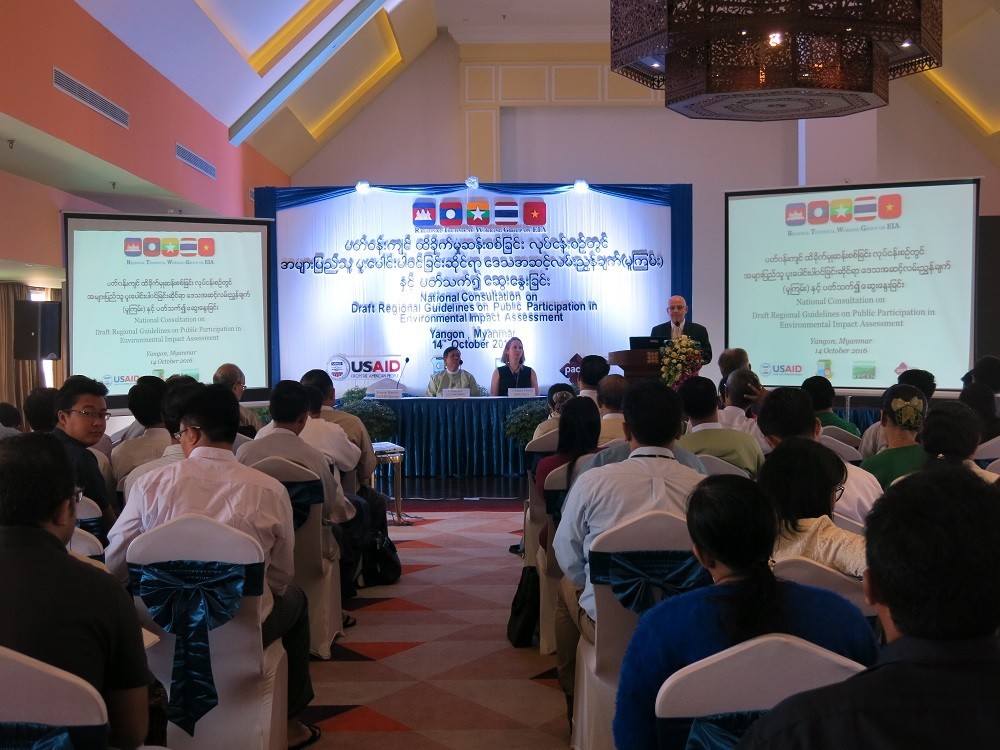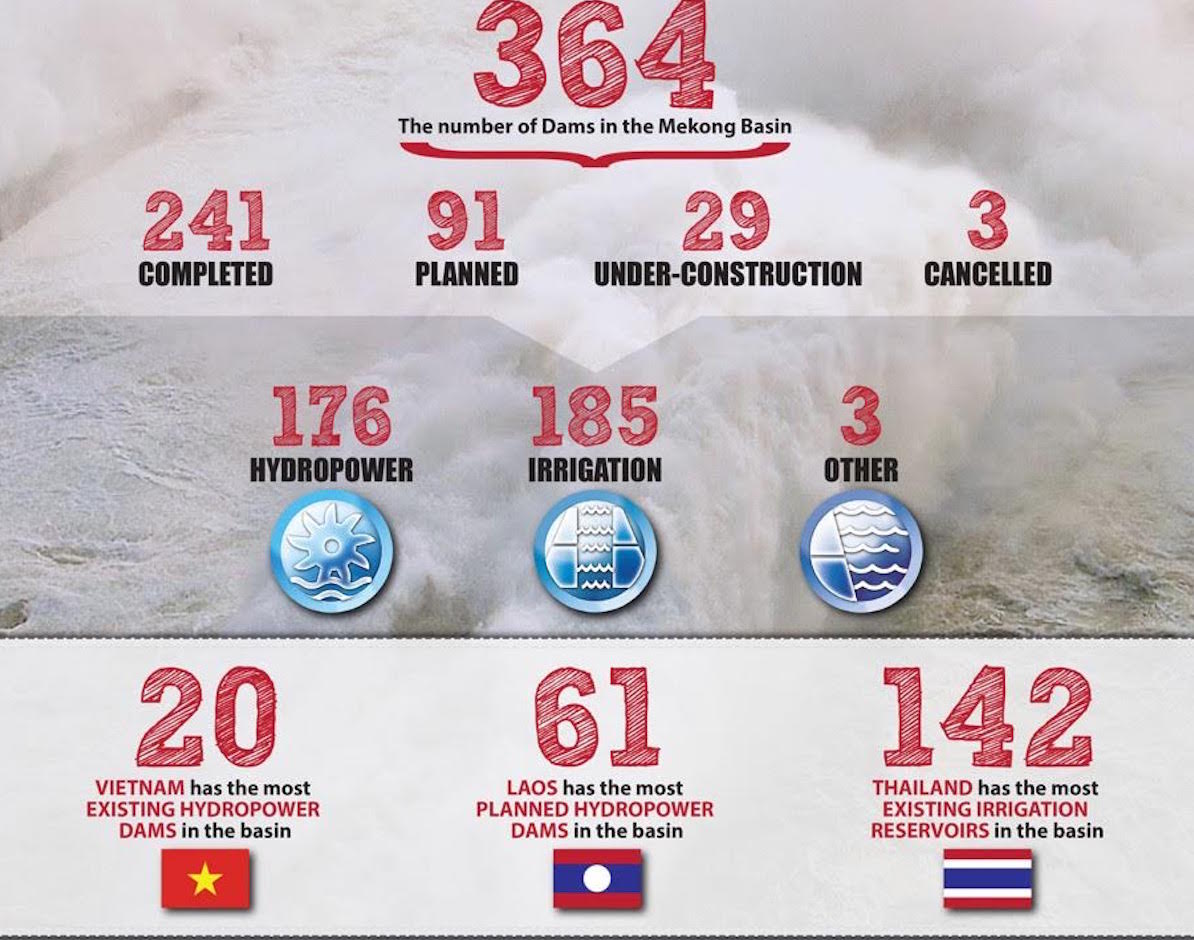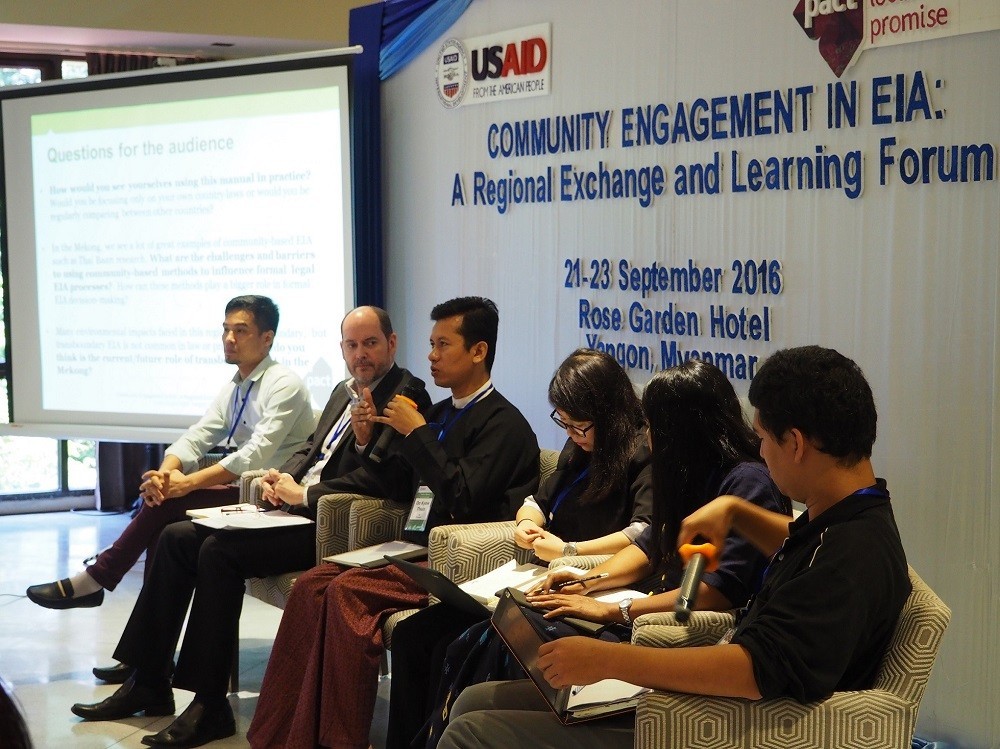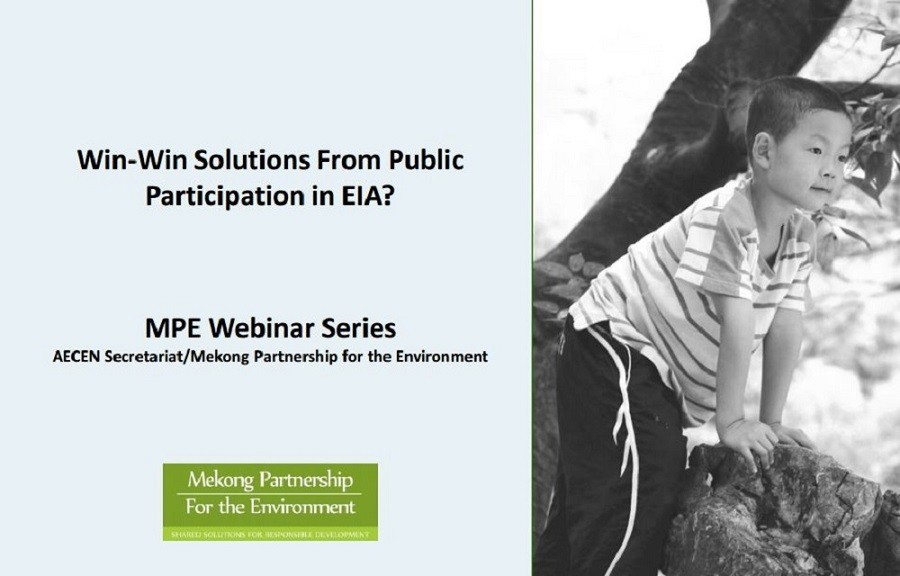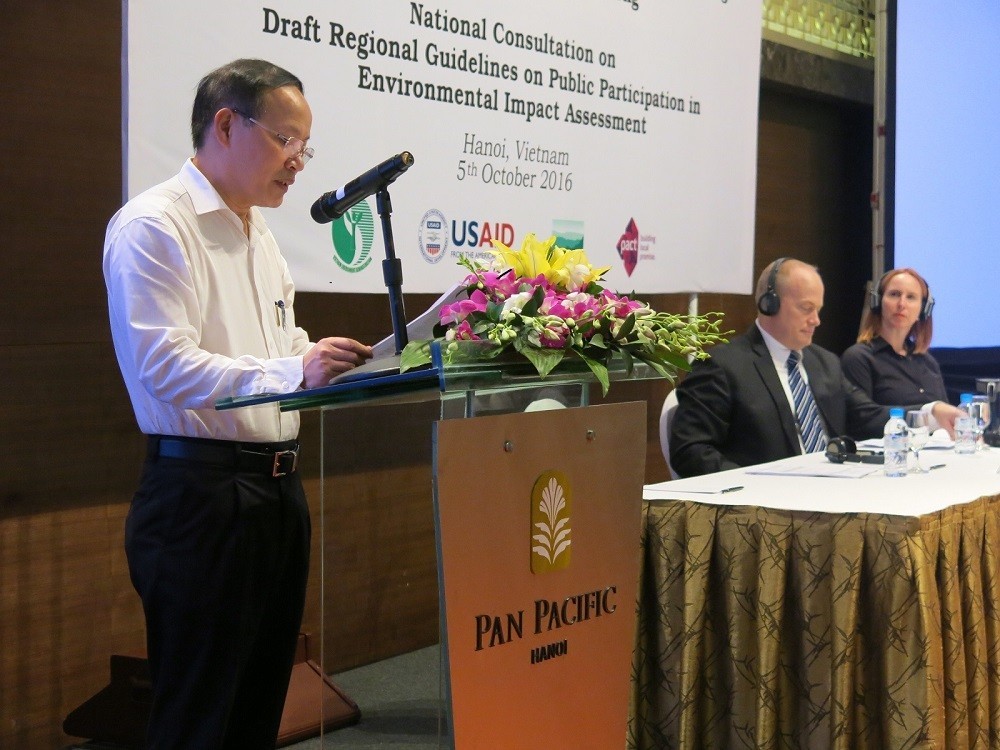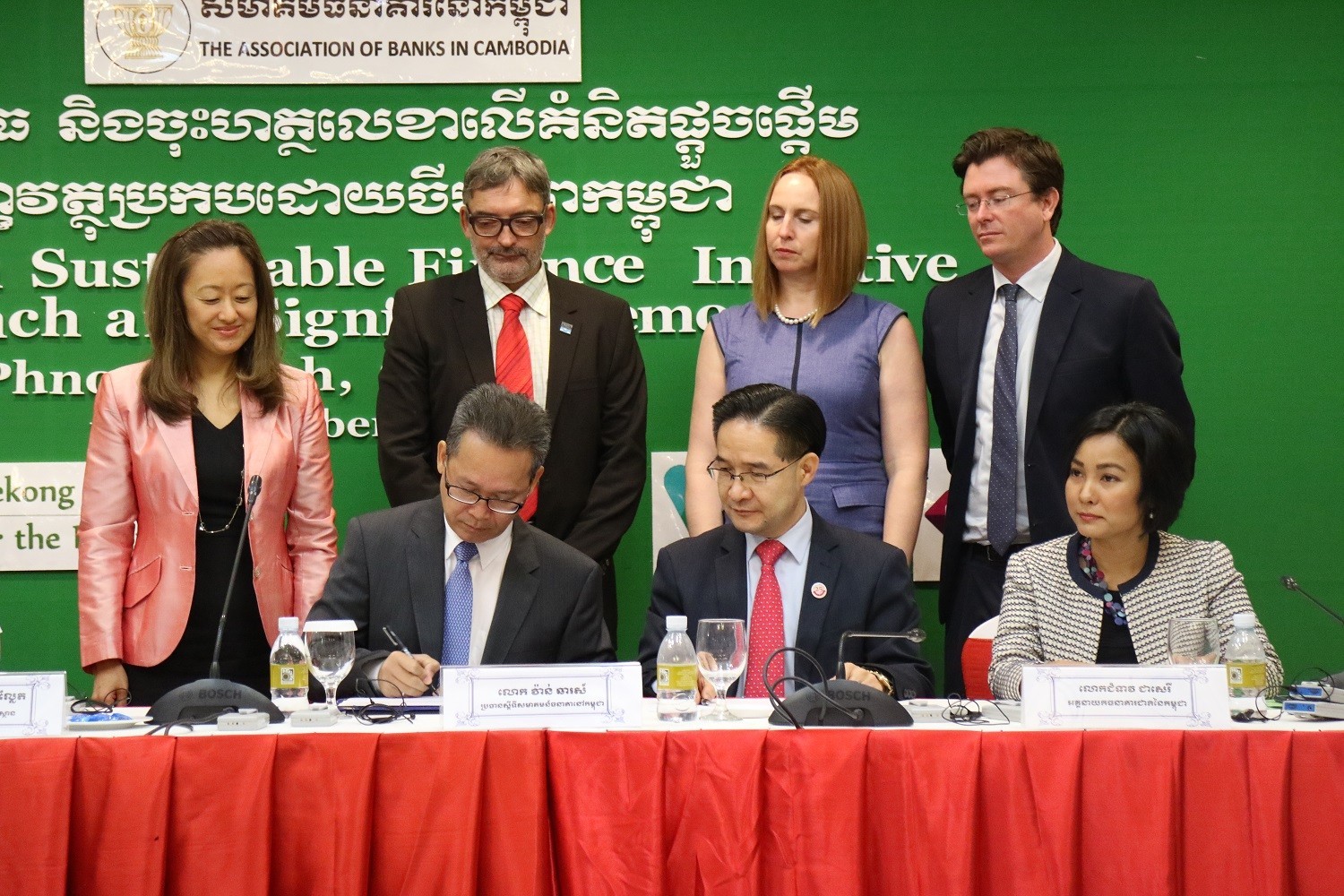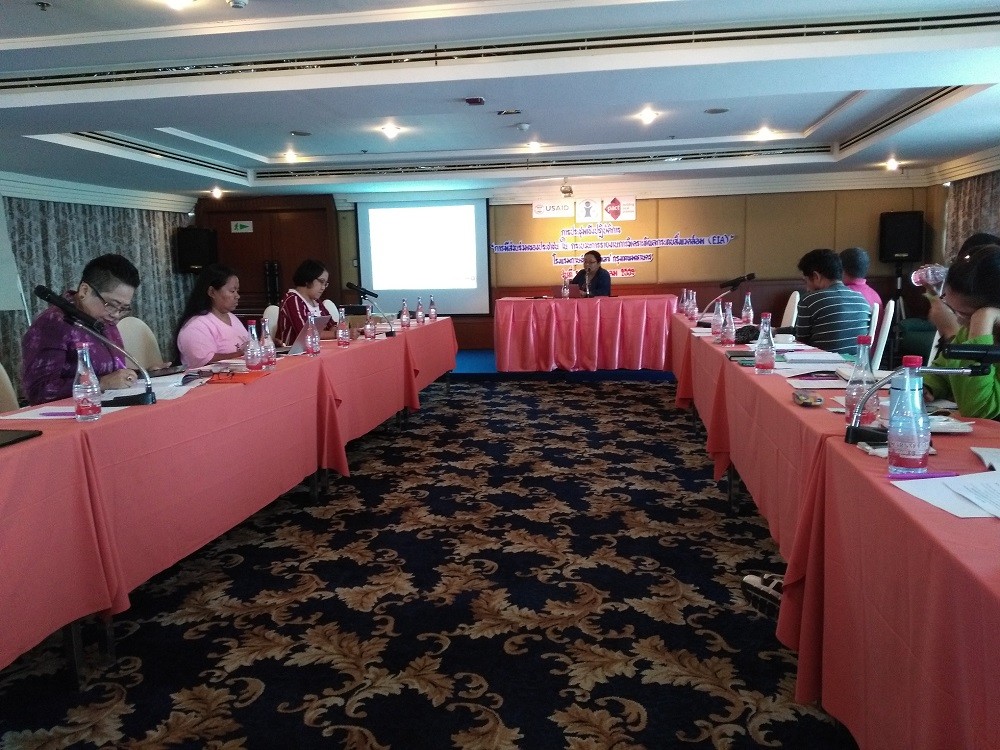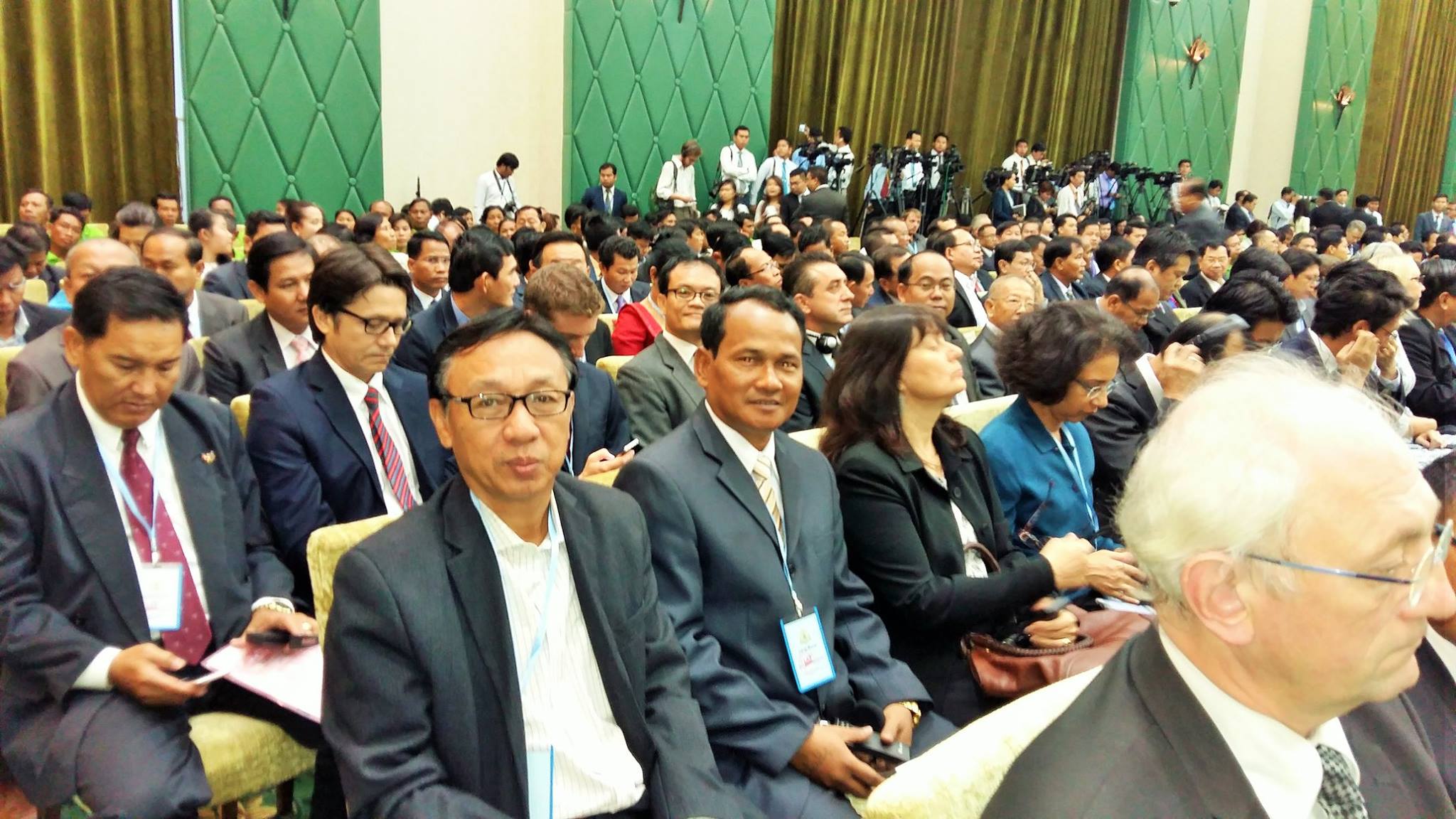Following growing public alarm triggered by a series of major industrial pollution disasters the Ministry of Industry and Trade last week flagged 28 projects – including more than a dozen coal plants – as warranting “special monitoring” due to the risks they pose to the environment. The coal plants, which involve the state-owned power utility Electricity of Vietnam (EVN) or Vietnam Oil and Gas Group (PVN), have become flashpoints for public alarm due to widespread pollution affecting public health and other industry sectors such as farming, fishing and tourism.
Category: Resource / PR
Landmark public consultations on infrastructure development held in Vientiane
A landmark public consultation in Laos on the draft Regional Guidelines on Public Participation in Environmental Impact Assessment (EIA) was held in Vientiane. More than 100 representatives from private sector companies, communities, non-profit associations, international organizations, government agencies, environmental impact assessment consulting firms gathered today at a public consultation in Vientiane to provide feedback on draft Regional Guidelines on effective Public Participation in Environmental Impact Assessment processes as a way to ensure these processes involve communities.
Myanmar government and civil society hold landmark consultations on public participation in infrastructure development
Representatives from government and civil society jointly held the first-of-its-kind public consultations in Yangon to solicit feedback on draft Regional Guidelines on effective Public Participation in Environmental Impact Assessment processes. When finalized, the guidelines will help ensure that the voices of local people are heard about large-scale infrastructure development projects, such as dams, mines, power plants, and industrial zones, planned in their communities.
From dams to basins: mapping across scales
t the end of June 2016, WLE Greater Mekong published a series of maps identifying dams on the Irrawaddy, Salween, Mekong, and Red rivers and their tributaries. The maps cover existing dams, dams under construction, planned dams, and cancelled dams; both irrigation dams and hydroelectric dams are mapped, as long as they have a reservoir size of at least 0.5 km2 and/or have an installed capacity of at least 15 megawatts (for hydroelectric dams).
The following is the first half of an interview that took place on 8 July 2016, between Dr Kim Geheb—the WLE Greater Mekong Regional Coordinator — and the editor of Thrive. It is being published here in anticipation of the Great Mekong Forum on Water, Food, and Energy.
Regional NGOs Convene in Myanmar to Improve Community Involvement in Infrastructure Decisions
This week, 50 representatives from non-governmental organizations (NGOs) across the Mekong region met in Myanmar to share successes and challenges in effectively involving local communities in environmental impact assessment processes. At the “Community Engagement in Environmental Impact Assessment: A Regional Exchange and Learning Forum” in Yangon, participants explored approaches to helping communities constructively engage with businesses and government to ensure sustainable and equitable development in the context of increasing infrastructure investment in the region.
Regional EIA Experts learned ‘Win-Win’ Solutions from Public Participation in EIA in 4th MPE Webinar
Asian Environmental Compliance and Enforcement Network (AECEN) in collaboration with Mekong Partnership for the Environment (MPE) organized the Fourth MPE Webinar Series on Win-Win Solutions from Public Participation in Environmental Impact Assessment on 30th August 2016, hosted by Dr. Peter King. Over 28 Government officials from the EIA department, CSOs along with other EIA Practitioners across Asia and representatives from development partners registered for this event.
Public Consultations Underway to Improve Environmental Impact Assessment for Infrastructure Development
More than 50 representatives from private sector companies, communities, civil society organizations, government agencies, environmental impact assessment (EIA) consulting firms gathered today at a public consultation in Hanoi to provide feedback on draft Regional Guidelines on Public Participation in Environmental Impact Assessment processes as a way to ensure these processes involve affected communities. The participants’ input will help improve an effort that is seen by many as critical for the region to address the environmental and social impacts of the growing array of regional development projects such as dams, mines, power plants, and industrial zones.
Cambodian Banks Commit to Developing Sustainable Financing Principles
The Association of Banks in Cambodia (ABC) took a first major step towards sustainable lending practices this week by committing to develop sustainable finance principles and ultimately work towards integrating environmental and social safeguards and lending standards into their business decisions.
Community EIA Meeting in Thailand: “Any effort to improve participation in EIA should be encouraged”
USAID-supported Mekong Partnership for the Environment (MPE) is strengthening Thai communities’ knowledge on Environmental Impact Assessment (EIA) processes for large-scale development projects that may have impacts on the environment and their communities.
Civil Society Leaders Meet with Cambodian PM, Receive Support for Ongoing Dialogues
Two key civil society organization (CSO) partners of USAID-supported Mekong Partnership for the Environment (MPE), recently met the Cambodian Prime Minister and were able to earn his support for more formal mechanisms for dialog between civil society and government.



